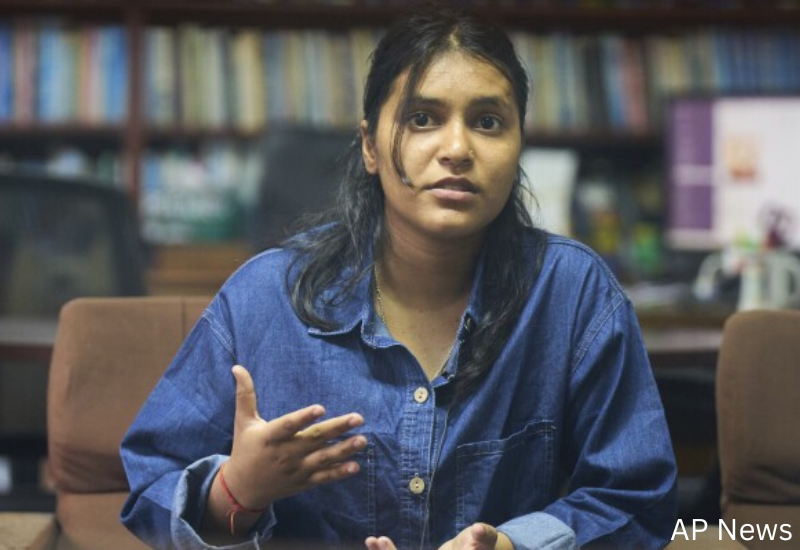Pushpa Joshi, 18, the sister of Bipin Joshi—a Nepali foreign student held hostage by Hamas since October 7, 2023—expressed a renewed sense of hope following the group’s recent statement indicating its willingness to release hostages. Speaking about the announcement, she described the news as uplifting, highlighting the emotional toll of the prolonged captivity and the anticipation for a potential resolution.
Family Perspective
For Pushpa and her family, the past nearly two years have been marked by uncertainty and anxiety. The news from Hamas offers a glimmer of relief and the possibility of reunification. In her statement, she said:
“I thank God, and I’m so happy. I really hope that the Israeli government will also approve it, and finally I will be able to see my brother.”
Her words illustrate the profound emotional impact hostage situations have on families, reflecting both relief at the prospect of release and concern over the complex negotiations that lie ahead.
Hope for Diplomatic Resolution
Pushpa also expressed hope that former President Donald Trump would play a role in facilitating the release of all hostages. She emphasized her optimism that Trump’s peace plan, which includes provisions for the safe return of hostages, would be implemented swiftly and effectively.
Her sentiments underscore the human dimension of high-level diplomacy: while political and strategic considerations are critical, the well-being of individual hostages and their families remains a central concern.
The Human Cost of Hostage Situations
The Joshi family’s experience highlights the broader humanitarian impact of prolonged hostage situations. Families endure emotional distress, uncertainty, and a lack of information about the safety of their loved ones.
- Psychological Strain: Continuous worry and stress affect family members’ mental health.
- Social Impact: Hostage crises often isolate families from community support systems due to fear or stigma.
- Dependence on Diplomacy: Families are often reliant on international diplomacy and negotiation for the resolution of their loved one’s situation.
The announcement by Hamas offers not only a potential physical reunion but also an emotional reprieve from the ongoing anxiety.
The Role of Peace Plans
Trump’s peace plan, which includes the release of hostages as a key component, provides a structured framework for ending the conflict and ensuring the safety of those held captive. Pushpa’s hope that the plan will be implemented reflects public awareness of diplomatic efforts and reliance on structured negotiations to achieve tangible results.
The plan also emphasizes international cooperation, humanitarian considerations, and the importance of timing in negotiations—all factors that directly impact hostages like Bipin Joshi.
Wider Regional and International Implications
The Joshi family’s hope is mirrored by other families of hostages in Gaza. The statement from Hamas has implications beyond individual families:
- Humanitarian Relief: Safe release would alleviate suffering for multiple families and communities.
- Diplomatic Momentum: Successful implementation could foster goodwill and encourage further engagement between conflicting parties.
- Public Awareness: Stories like Pushpa’s bring human faces to political negotiations, emphasizing the need for accountability and urgency.
By highlighting individual experiences, international attention can be mobilized to support practical solutions that prioritize safety and human life.
Challenges in Implementation
While the announcement is promising, challenges remain in translating intent into action:
- Approval by Authorities: The Israeli government must review and approve the arrangements for hostage release.
- Security Considerations: Safe transfer requires coordination between multiple parties to avoid endangering hostages.
- Verification and Monitoring: International or third-party oversight may be needed to ensure compliance with agreed terms.
Pushpa’s optimism reflects hope that these challenges can be addressed efficiently, but it also underscores the uncertainties inherent in complex negotiations.
Emotional and Symbolic Significance
For Pushpa, the announcement is not just about her brother’s physical safety—it symbolizes hope, faith, and the possibility of justice after prolonged suffering. Her emotional response highlights the profound personal stakes behind geopolitical conflicts.
- Faith and Resilience: Expressing gratitude and hope demonstrates the emotional resilience families develop during crises.
- Community Solidarity: Public stories of families awaiting hostages can galvanize broader support networks.
- Motivation for Diplomacy: Personal narratives remind policymakers of the human impact of their decisions, encouraging swift and careful resolution efforts.
Conclusion
Pushpa Joshi’s response to Hamas’ statement underlines the intersection of human emotion and high-level diplomacy. The willingness of the militant group to release hostages offers hope not only for her family but for many others affected by the conflict. While logistical, political, and security challenges remain, the announcement represents a critical step toward reunification, humanitarian relief, and the potential for a broader peace process. Her hope serves as a poignant reminder that behind every political negotiation are real lives yearning for resolution and safety.
%20(4).png)




